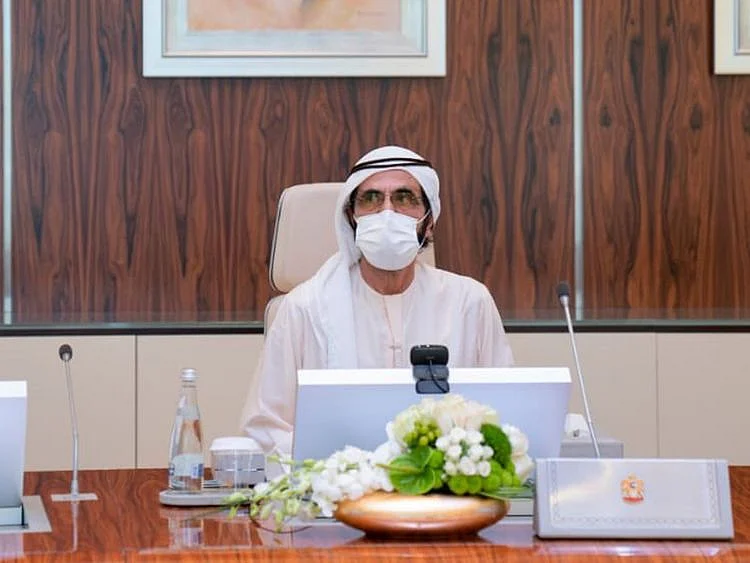Sheikh Mohammed: UAE ranks first globally in 121 indices
Sheikh Mohammed congratulated Sheikh Khalifa bin Zayed, Sheikh Mohamed bin Zayed

Also In This Package
It just got easier to apply for Dubai's Retirement Visa
COVID-19: Wedding, funeral protocols in UAE
COVID-19: Rules for desert safari, camping in Abu Dhabi
What to do if you were in contact with COVID-19 patient
What are the rights of a domestic worker in the UAE?
Can my employer enforce non-compete clause against me?
Abu Dhabi: The UAE is number 1 in more than 121 global indices and 479 regional ones, announced His Highness Sheikh Mohammed bin Rashid Al Maktoum, Vice President and Prime Minister of the UAE and Ruler of Dubai. In 2020 alone, (the year of global health crisis as Sheikh Mohammed labelled it), the UAE has took the lead in 79 international indicators, Sheikh Mohammed revealed during a Cabinet meeting held on Sunday under his chairmanship at Qasr Al Watan in Abu Dhabi.
“We are among the top 10 most competitive countries globally in more than 300 global indices. Our message to everyone here in the UAE and abroad is that the UAE has no option but to excel and move ahead. Retreat is never an option,” Sheikh Mohammed said. In a series of tweets, Sheikh Mohammed congratulated President His Highness Sheikh Khalifa bin Zayed Al Nahyan and His Highness Sheikh Mohammed bin Zayed Al Nahyan, Crown Prince of Abu Dhabi and Deputy Supreme Commander of the UAE Armed Forces, on such a remarkable achievement, which was the result of strenuous efforts made by thousands of teams across all sectors.
Also Read
IPL 2020 in UAE: Chennai Super Kings slump to defeat against Delhi Capitals in picturesIn Pictures: Israel Adesanya destroys Paulo Costa to retain middleweight title in Abu DhabiPhotos: Sharjah schools welcome back studentsPhotos: Gulf News readers share pictures of foggy weather in UAEDuring the meeting, Sheikh Mohammed affirmed that enhancing competitiveness ranking in all sectors plays a key role in the development strategies adopted by the country to further advance government performance and enhance the quality of life for citizens and residents.
Lt General Sheikh Saif bin Zayed Al Nahyan, Deputy Prime Minister and Minister of the Interior, and Sheikh Mansour bin Zayed Al Nahyan, Deputy Prime Minister and Minister of Presidential Affairs were present. The meeting reviewed a detailed report on the performance of the UAE in the most important global competitiveness indicators.
Sheikh Mohammed stressed that competitiveness is not a goal in itself, but rather a means to further enhance the performance and competence of all sectors, thus ensuring a high quality of life for citizens and residents, adding: “Attaining sustainable competitiveness within government work allows for the development of more flexible plans and policies that rise to the changes at the current stage”.
The report presented by the Federal Competitiveness and Statistics Authority reveals that the UAE ranked first globally in 121 indicators, first in the Arab world in 479 indices, and among the top ten countries in 314 indicators.
Following the recent ministerial formation, the Cabinet has approved 4 new organisational structures for Ministry of Economy, Ministry of Culture and Youth, Ministry of Industry and Advanced Technology, and Ministry of Energy and Infrastructure.
The Cabinet has also approved a Federal Decree-Law on private education, with the aim of organising the educational process in private schools, raising the quality of education, and stimulating competition between private schools. The law also regulates the licencing of private schools, approval of educational curricula, and the safety of students.
The Cabinet also approved Federal Decree-Laws on the amendment of the penal code (Criminal Law), the Commercial Transactions Law, the Securities and Commodities Law, the Insurance Law, and the organisation of the telecommunications sector law.
Furthermore, the Cabinet approved the executive regulations of the Federal Law concerning the practice of the human medicine profession, which comprises detailed rules, provisions and procedures aimed at facilitating the implementation of the law.
At the international level, the Cabinet approved agreements between the government of the UAE and a number of friendly countries to prevent double taxation, including the Republic of Chile, the Arab Republic of Egypt and the Republic of Zambia, in addition to an agreement with the Republic of Zambia on the encouragement and mutual protection of investments.
During the meeting, the Cabinet reviewed a number of government reports in various sectors, including the report of the financial statements of the Emirates Development Bank and the report of the external auditor for the fiscal year 2019, in addition to a report on the performance of the insurance sector in the country.
Sign up for the Daily Briefing
Get the latest news and updates straight to your inbox
Network Links
GN StoreDownload our app
© Al Nisr Publishing LLC 2026. All rights reserved.